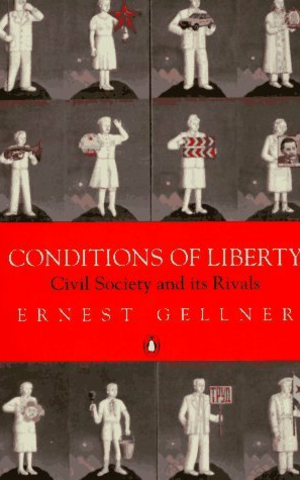
Conditions of Liberty: Civil Society and its Rivals
- Book
- 1994
- #SocialScience
As Ernest Gellner shows in this path-breaking book, the most significant difference between communism (and other totalitarian ideologies) and Western liberalism is the existence of...
Show More
Number of Pages: 240
ISBN: 0140236058
ISBN-13: 9780140236057